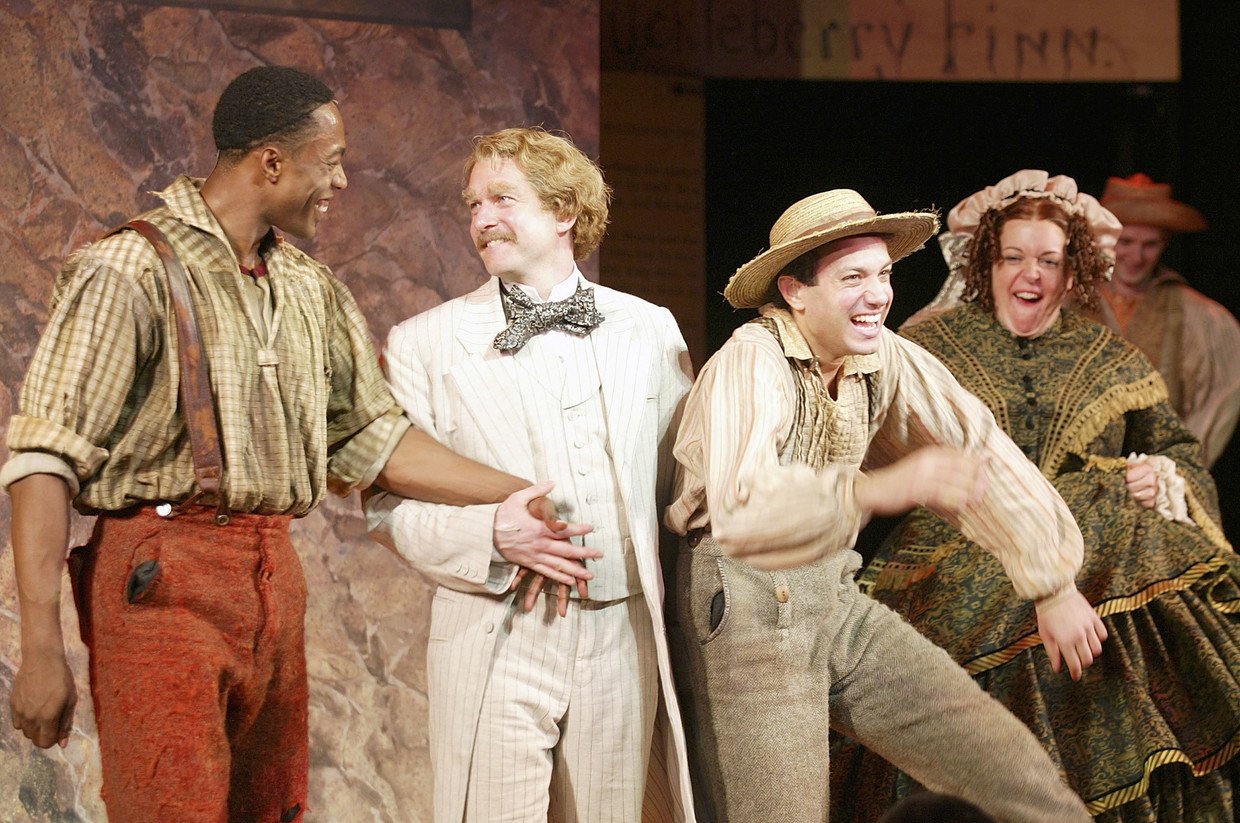PC culture targeting art, literature & theatre puts West in fight against history

In this new age of political correctness, it’s not just modern actors, artists and performers who need to watch their words — even classic writers and world-famous pieces of art have found themselves in the PC firing line.
Every other week, it seems like there’s a new case of something “racist” or “culturally insensitive” being banished from view in this fight against anything that could conceivably be “offensive” to the eyes or ears of one group or another.
With more and more old literary classics, theatre plays and works of art being ‘reexamined’ over their ‘problematic’ themes and words, it’s almost like the West’s is in a fight against its own cultural history.
‘Huckleberry Finn’ too racist to read?

Read by millions of American schoolchildren for more than one hundred years, Mark Twain’s ‘Adventures of Huckleberry Finn’ has suddenly become too controversial for curricula.
Sensitive lawmakers in New Jersey recently introduced a resolution that would remove the book from school programs. Why? Because the novel, written in the 1880s, uses racial slurs and depicts racial attitudes and stereotypes which could “cause students to feel upset.”
Instead of using the American classic to perhaps teach kids about racism and history, the lawmakers have decided to just get rid of it instead. It doesn't even seem to matter that the racial slurs are used by characters who are portrayed negatively in the book, their mere existence in the text is apparently enough to warrant the banishing.
‘Mary Poppins’ and ‘The Lion King’? Too insensitive!
Two more cherished classics to add to the literary and cinematic naughty corner are P. L. Travers’ ‘Mary Poppins’ and Disney’s ‘The Lion King’, which are both now too racist for consumption, apparently.
Mary Poppins wasn’t flirting with black face! It was soot in their faces from being a chimney!!! Stopped spreading racism claims on non racist things like this!!!
— Jennifer Conway (@jencon1978) January 31, 2019
Last month, a New York Times op-ed accused ‘Mary Poppins’ of “shameless flirting” with blackface and racism because she got soot on her face while dancing with the chimney sweeps in the 1964 movie adaptation of the book. Meanwhile, ‘The Lion King’ has been panned as racist, because the classic animated children’s movie depicts Africa as “one big wild animal preserve” and doesn’t include human characters (seriously).
Ancient Greek play in ‘blackface’ scandal
Europe's oldest university at the Sorbonne has seen many a banning controversy in its day — the works of Erasmus were banned by the university in the 16th century, for example — but it looks like the hallowed place of learning is not yet done with censorship.
Activists at the Sorbonne university have just blocked a theater performance of ‘The Suppliants’ by Greek playwright Aeschylus, because some characters wear black masks, which they said could promote racial stereotypes.
Not all hope is lost, however. In this case, the university itself lashed out at the activists saying the blockage of the performance was “a very serious, totally unjustified attack on freedom of creation.”
France's education minister even weighed in on the ‘scandal’ and said that while growing racism was an issue in France, some activist groups were perpetrating a “certain violence in the name of anti-racism.”
New names for problematic paintings?
In another attempt at cultural ‘sensitivity’, a French museum has launched a special exhibition in which a number of masterpieces have been renamed after their black subjects. Manet's Olympia, for example, has been renamed ‘Laure’ after the woman who posed as her black maid in the background — although the renaming seems to be temporary for this particular exhibition.
But renaming art as a form of ‘reconciliation’ is not a new idea. Last year, the Art Gallery of Ontario renamed a painting by Canadian artist Emily Carr in an effort to “eliminate culturally insensitive languages” from the titles in its collection. The painting of a white church in an indigenous village was originally called ‘Indian Church’ but its new name is ‘Church at Yuquot Village’.
Also on rt.com PC gone wild: Traditions that will never be the same after 2018Not everyone was delighted by the move, with some in the art community saying that the renaming displaces the work from its historical context, which does even more damage. Back in 2015, a Dutch museum also began renaming works of art to ensure that modern museum goers were not offended.
Shield your eyes from the Columbus murals
To shelter sensitive students from the sins of the past, the University of Notre Dame announced earlier this year that it would cover up murals of Christopher Columbus, the explorer who committed atrocities against native people after he ‘discovered’ the Americas while seeking to find a new trade route to India — a moment in history which sparked centuries of transatlantic colonization.
Notre Dame president John Jenkins wrote in an email that the murals on campus were “demeaning” to the “indigenous peoples.” The decision outraged the Young Americans for Freedom (YAF) chapter at the university whose spokesperson said Notre Dame had decided to “coddle its students by shielding them from a painting of an important figure in world history.”
The attitude now seems to be, if history is upsetting or too hard to handle, we should just try to forget it ever happened and destroy anything that might remind us.
With delicate modern sensibilities dictating everything these days, it looks like it’s time to enjoy these creations of the past before it’s too late.
Like this story? Share it with a friend!















